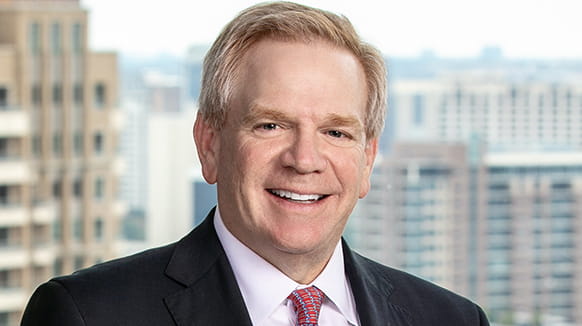On October 11, 2016, the U.S. Court of Appeals for the D.C. Circuit dealt two distinct blows to the Consumer Financial Protection Bureau (“CFPB”) in PHH Corp. v. CFPB, No. 15-1177 (D.C. Cir. Oct. 11, 2016).1 First, it held that the CFPB’s single-director structure is unconstitutional. Because the CFPB does not have multi-member leaderships, and because the President can only terminate the CFPB’s single director for cause, the Court held that the bureau lacks the accountability required to protect individual liberties under the U.S. Constitution. Second, the D.C. Circuit vacated the bureau’s $109 million order against PHH for impermissible captive reinsurance arrangements for two notable reasons: (a) the CFPB retroactively applied a new interpretation of Section 8 of the Real Estate Settlement Procedures Act (“RESPA”) in violation of PHH’s due process rights, and (b) the Dodd-Frank Act incorporates the statutes of limitations of the underlying statutes the CFPB enforces in administrative proceedings—in that case, RESPA’s three-year limitations period.
Although the status of the CFPB, and indeed all of the Dodd-Frank Act changes, remains uncertain as a result of the recent election results, the Court’s decision does not impact the CFPB’s current powers, including the issuance of new rules and the filing of enforcement actions.
The CFPB
Following the fallout of the 2007-2008 financial crisis and the Great Recession, Congress established the CFPB as part of the Dodd-Frank Act of 2010. The CFPB is responsible for consumer protection in the financial sector and enforces 19 federal consumer protection statutes. The CFPB’s enforcement spans banking, personal loans, home finance, credit cards, and more.
Although originally envisioned as an independent agency headed by a multi-member commission, Congress ultimately designed the bureau as an independent agency with a single director. Thus, atop the CFPB sits a single director who “alone decides what rules to issue; how to enforce, when to enforce, and against whom to enforce the law; and what sanctions and penalties to impose on violators of the law.”2
The Underlying Claims
The D.C. Circuit’s rulings stem from an enforcement action the CFPB brought against PHH, a mortgage lender. The CFPB alleged that PHH referred consumer borrowers to mortgage insurers, and that the mortgage insurers then bought reinsurance from a mortgage reinsurer affiliated with or owned by PHH. The CFPB interpreted Section 8 of RESPA to prohibit these arrangements, known as captive reinsurance arrangements. As a result, the bureau and bureau Director Richard Cordray issued a $109 million order against PHH.
PHH appealed to the D.C. Circuit. PHH argued four points: that the CFPB’s single-director structure is unconstitutional; the CFPB incorrectly interpreted RESPA; the CFPB’s retroactive application of this new interpretation violated PHH’s due process rights; and the CFPB ignored RESPA’s three-year statute of limitations.
The D.C. Circuit’s Constitutional Ruling
The Court held that the CFPB’s single directorship violates the U.S. Constitution’s checks on executive power and protections of individual liberties.
The D.C. Circuit explained the two categories of agencies that exercise executive power. Executive agencies, such as the Department of Justice and the Department of the Treasury, are headed by a single person who the President can terminate at will. Independent agencies, such as the Securities and Exchange Commission and the Federal Trade Commission, have multi-member leadership that the President can only remove for cause. Under each category, the Court explained, agency leadership is held accountable by the supervision and direction of others—to help preserve individual liberty under Article II.3
The CFPB, however, does not fit either category. The CFPB’s director does not have co-leadership, and the President cannot terminate the director at will. The Court remarked that the CFPB director possesses “more unilateral authority than any other officer in any of the three branches of the U.S. Government, other than the President.”4 As a result, the Court held that the CFPB’s structure departed from historical precedent and lacked the accountability required of an agency exercising executive power under the Constitution.
After declaring the CFPB’s structure unconstitutional, the Court had to decide the CFPB’s fate. The Court did not establish a commission or disband the CFPB entirely, as PHH urged. Instead, the Court “simply sever[ed] the statute’s unconstitutional for-cause provision from the remainder of the statute.”5 This severance, according to the Court, grants the President the power to fire the director at will and provides the necessary constitutional check on the CFPB’s authority.
Of further importance, the Court refused to invalidate any of the CFPB’s or the director’s prior rules or actions. The CFPB’s previous decisions remain in place.
The D.C. Circuit’s Statutory Rulings
Although the D.C. Circuit’s constitutional ruling grabbed the headlines, the Court also vacated the CFPB’s $109 million order against PHH for three reasons. First, the Court held that the CFPB incorrectly interpreted Section 8 of RESPA. According to the D.C. Circuit, Section 8 does not prohibit all captive reinsurance arrangements. It only prohibits those where the amount the mortgage insurer pays for reinsurance exceeds reasonable market value.
Second, even if the CFPB’s interpretation was correct (which it was not), the CFPB erred in retroactively applying its new interpretation of Section 8. When Congress created the CFPB in 2010, it decided that the CFPB would assume enforcement of Section 8 from the Department of Housing and Urban Development (“HUD”). HUD had interpreted Section 8 to allow captive reinsurance arrangements so long as the mortgage insurer paid no more than reasonable market value for the reinsurance. Thus, when the CFPB brought this action against PHH, it simultaneously discarded HUD’s prior interpretations and announced its new interpretation. The CFPB also retroactively applied its new interpretation to PHH’s conduct that occurred under HUD’s previous interpretations and prior to the CFPB’s new one. This, the Court held, violated PHH’s due process rights.
Third, the CFPB incorrectly argued that it could bring an administrative action beyond the three-year statute of limitations provided under RESPA. According to the Court, the “Dodd-Frank Act incorporates the statutes of limitations in the underlying statutes enforced by the CFPB in administrative proceedings.”6 Furthermore, RESPA’s “three-year statute of limitations applies to all CFPB enforcement actions to enforce Section 8, whether brought in court or administratively."7
Implications
The D.C. Circuit’s constitutional ruling spawns excitement, particularly for those advocating for restraint on the CFPB’s power, but the decision’s force is unclear. This ruling potentially strips the CFPB of its independence, making the bureau susceptible to the political process and the President’s desires. But, on the other hand, a change to a commission-style structure could weaken the bureau’s ability to protect consumers, target bad actors, and enforce the law.
Beyond the direct decision regarding the CFPB’s action against PHH, the Court’s ruling may not have teeth. The ruling leaves the CFPB’s prior and future actions untouched. And although the President may now terminate the director at will, the ruling does not impact the CFPB’s actual powers to issue rules, bring enforcement actions, and oversee appeals of the bureau’s administrative actions.
Nevertheless, we expect that the Court’s RESPA rulings may slightly curtail future CFPB enforcement actions. The Court declared that the CFPB must abide by statutes of limitations and interpretations previously espoused by other agencies related to existing laws. The CFPB must also provide notice of any (permissible) changes it makes to the prior interpretations of agencies for which the CFPB took over. Lastly, it cannot retroactively apply those new interpretations.
In the end, the CFPB likely will appeal the D.C. Circuit’s ruling, and the CFPB will continue to operate as normal – at least for the time being.
For more information contact one of the lawyers listed below.
1 The Court’s 110-page opinion in PHH Corp. v. CFPB, No. 15-1177 (D.C. Cir. Oct. 11, 2016) is available here.
2 PHH Corp., No. 15-1177, at 6-7.
3 Id. at 5.
4 Id. at 6.
5 Id. at 10.
6 Id. at 13.
7 Id.

